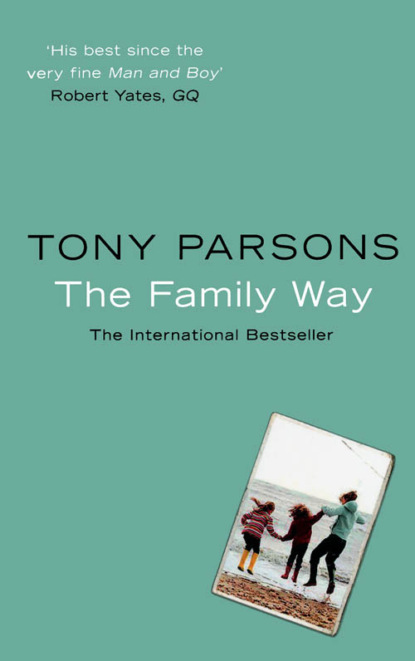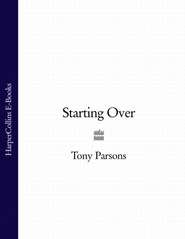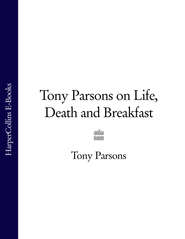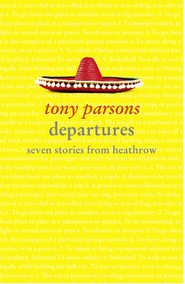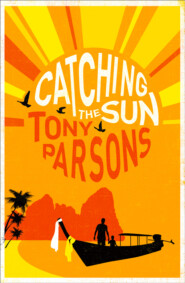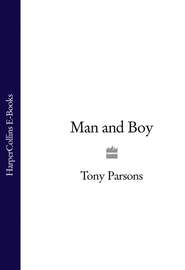По всем вопросам обращайтесь на: info@litportal.ru
(©) 2003-2024.
✖
The Family Way
Автор
Год написания книги
2018
Настройки чтения
Размер шрифта
Высота строк
Поля
But Olivia was a delicate porcelain beauty, like that other Olivia, Miss de Havilland, already a bit of a throwback in those years of post-war austerity, when large-breasted blondes were suddenly all the rage.
Olivia was swooned over by her teachers, her classmates and, later, the critics, who loved her as a petulant, foot-stamping Cordelia in Stratford. It was widely predicted that Jack would always work, but that Olivia was destined for true stardom. In the mocking passage of time, it had worked out very differently.
After a few years where he scuffled around in the background of British films nostalgic for World War Two – playing the pipe-smoking captain in a chunky sweater who goes down with his shipmates, or the knobbly-kneed POW who gets shot in the back by the Hun while attempting to escape, or the RAF squadron leader with the gammy leg anxiously scanning the blue skies of Kent – Jack Jewell stumbled on the role of a lifetime.
For almost twenty years he played a widowed father in the long-running BBC fishing drama, All the Fish in the Sea – played it for so long that Megan, his youngest child, had little memory of her father being around when she was growing up, he was so busy playing a doting father to his screen children. By the time they reached their teenage years, Jack Jewell’s kindly, knowing face had become one of the cherished icons of the nation, while Olivia’s big starring roles had never materialised.
‘Dad would be pleased,’ Megan said, deliberately provoking her. ‘Dad would be happy to be a grandfather.’
Olivia shot her daughter a look. ‘You didn’t tell him, did you?’
‘Of course not. But he would be happy, I bet.’
Olivia Jewell laughed. ‘That’s because he’s a big soft bastard. And because he doesn’t care what it would do to your life. Not to mention your lovely young body, dear.’
Megan and her mother were in the café in Regent’s Park, ringed by all the white Nash houses, the most beautiful buildings in London, Megan thought, like architecture made out of ice cream. They were on one of their dates – drinking tea and watching the black swans glide across the lake, smelling freshly cut grass and the animal mustiness of the nearby London Zoo.
Megan was the only one of her daughters that Olivia saw on a regular basis. Contact with Jessica was sporadic – Jessie was too easily hurt for a sustained relationship with someone as selfish as Olivia – and Cat hadn’t spoken to their mother in years.
You had to make an effort with her, Megan always thought. That’s what her sisters didn’t get. Their mother was all right if you made the effort.
‘In the early sixties there was a darling little Maltese man off Brewer Street who used to take care of girls who got into trouble.’ It still mildly surprised Megan every time she heard her mother’s voice. She had a self-consciously cut-glass accent, the kind of accent that made Megan think of men in Broadcasting House reading the news in their tuxedos. ‘God – what was his bloody name?’
‘It doesn’t matter, I’ll be all right,’ Megan said, pushing a napkin halfway across the table. Olivia covered her daughter’s hands with her own, and gently rubbed them, as if to make them warm.
‘Well – anything I can do, dear.’
Megan nodded. ‘Thank you.’
‘A woman’s body is never the same after giving birth. I had a body like you when I was young. Not petite like Jessica. Or skinny like Cat. More like you. All curves.’ Olivia squinted at her daughter. ‘Perhaps not quite so plump.’
‘Thanks a million.’
‘Did you know that Brando once made a pass at me?’
‘I think you mentioned it. About ten thousand times.’
‘Dear Larry Olivier admired my Cordelia. The dress I wore to the premiere of Carry On, Ginger caused a sensation. I was the Liz Hurley of my day.’
‘Then that makes Dad Hugh Grant.’
‘Hughie Green more like. That man. I dreamed of Beverly Hills. He gave me Muswell Hill.’
It was strange, Megan thought. Their mother was the one who walked out. Their mother was the one who shacked up with a second-rate ham in a rented flat. Their mother was the one who left the raising of her children to their father, and whoever he could hire, and to Cat. And yet their mother was the one who acted bitter. Perhaps she could never forgive their father for becoming a bigger name than she would ever be.
Her career had been a peculiarly English affair. If Olivia Jewell had ever needed a job description, then plummy crumpet would have just about nailed it down. In the fifties she had screamed her way through half a dozen Hammer Horror movies – strung up in her nightdress in a Transylvanian dungeon, the mad doctor lurching towards her, wicked experiments on his mind – and then moved into whatever ramshackle provincial theatre would have her when the times and the accents changed, and the public wanted actresses to be more working class and northern (the kitchen sink dramas), or exotic and foreign (James Bond and his bikini-clad harem).
Although only twenty-two when the sixties began, Olivia Jewell seemed to belong to another era. But she would never admit to the long years of rep and resting. In her conversation, and perhaps even in her feverish head, she was all that her teachers at RADA and Kenneth Tynan had predicted she would ever be.
Olivia’s star burned brightest the year after she left home for ever. Fleeting fame, when it came for their mother, arrived late. She was pushing forty – and admitting to thirty-two – when she landed the part of the posh, nosy neighbour in the mid-seventies ITV sitcom, More Tea, Vicar? The man in the back of the cab was the male lead, playing a diffident young priest who had an electrifying effect on his female parishioners, and in the sweltering summer of 1976, while London seemed to melt in the heat and Cat cooked for her sisters and tried in vain to find this new group the Sex Pistols on the radio, Olivia and her dirty vicar appeared together on the cover of the TV Times.
Then her star faded, and within a few short years the humour of More Tea, Vicar? swiftly seemed as though it came from some older England that was now embarrassing, racist, and ludicrously out of time.
The characters in it – the eye-rolling Jamaican, the goodness-gracious-me Indian, the bumbling Irishman and, yes, the plummy old crumpet from next door, who must have been a bit of a goer in her time – were all swept away on an angry tidal wave of jokes about Mrs Thatcher and bottoms.
Eventually the man in the back of the cab left Olivia alone in the rented St John’s Wood flat and went home to his wife and children. But somehow Olivia never seemed cowed by time and experience. The haughty grandeur she had mastered in the fifties had never deserted her. Megan believed in her.
‘What am I doing, Mum?’
‘You’re doing the right thing, dear.’
‘Am I? I am, aren’t I? What else can I do?’
‘You can’t be tied down, Megan. You’ve got your whole life in front of you. And what if you meet some young buck? Some handsome young surgeon?’ Olivia’s huge eyes twinkled with delight at the thought of this Harley Street hunk. Then she scowled, furiously stubbing out her cigarette, angry with her youngest daughter for throwing away this perfect match. ‘He’s not going to want to take on some other man’s child, is he?’
‘It’s not a baby yet,’ Megan said, more to herself than her mother. ‘Jessica wouldn’t understand that. That’s why I can’t tell her. Or even Cat. It still has a tail, for God’s sake. It’s more like a prawn than a baby. Admittedly, it would grow –’
Her mother sighed.
‘Darling, you can’t have some screaming little shit-machine holding you down. That’s what went wrong for me. No offence, dear. But you can’t have this brat.’
Megan’s eyes stung with unexpected tears.
‘I can’t, can I?’
‘Not now, darling. Not after passing all those exams. And being such a clever girl at medical school. And emptying bedpans in those horrid hospitals in the East End.’ Her mother looked pained. ‘Oh, Megan. A baby? Not now, chicken.’
Megan knew exactly what her mother would advise. That was why she had wanted to see her. To hear that she had absolutely no choice. To be told that there was no other way out. That there was nothing to even think about. Perhaps the reason that Megan was closest to their mother was because she remembered her the least.
The last meeting of Olivia and all of her daughters had been more than fifteen years ago. Megan was a bright-eyed, still boyish twelve-year-old, Jessica a shy, pretty sixteen, pale and quiet after getting mangled on some school skiing trip – at least, that’s what they told Megan – and Cat at twenty was clearly a young woman, emboldened by two years at university, openly bitter and keen to confront their mother over the designer pizzas.
When their mother casually informed them that she would not be attending the prize-giving day at Megan’s school – Megan was always the most academically gifted – because she had an audition to play a housewife in a gravy commercial (‘Too old,’ they said when she had left, ‘too posh.’), Cat exploded.
‘Why can’t you be like everybody else’s mother? Why can’t you be normal?’
‘If I was normal, then you three would be normal too.’
Megan didn’t like the sound of that. Her mother made normality sound scary. Maybe if she was normal then schoolwork wouldn’t come so easily to her. Maybe she wouldn’t be collecting a prize from the headmaster. Maybe she would be as slow and stupid as all the other children.
‘But I want us to be normal,’ Jessica sobbed, and their mother laughed as though that was the funniest thing in the world.
‘How is my little Jessica?’ said Olivia.
‘This is a tough time for her,’ Megan said. ‘She’s been trying for a baby for so long. She would feel terrible about – you know.’
‘Your abortion, yes.’
‘My procedure.’





